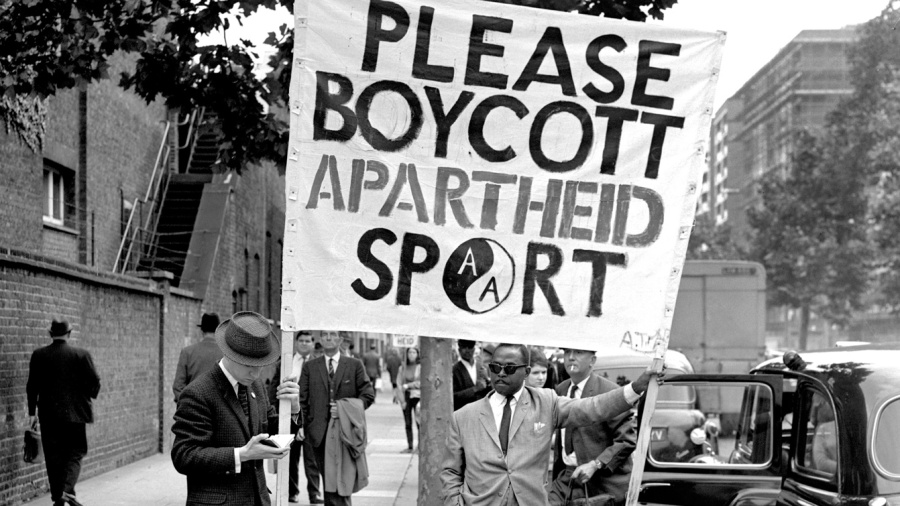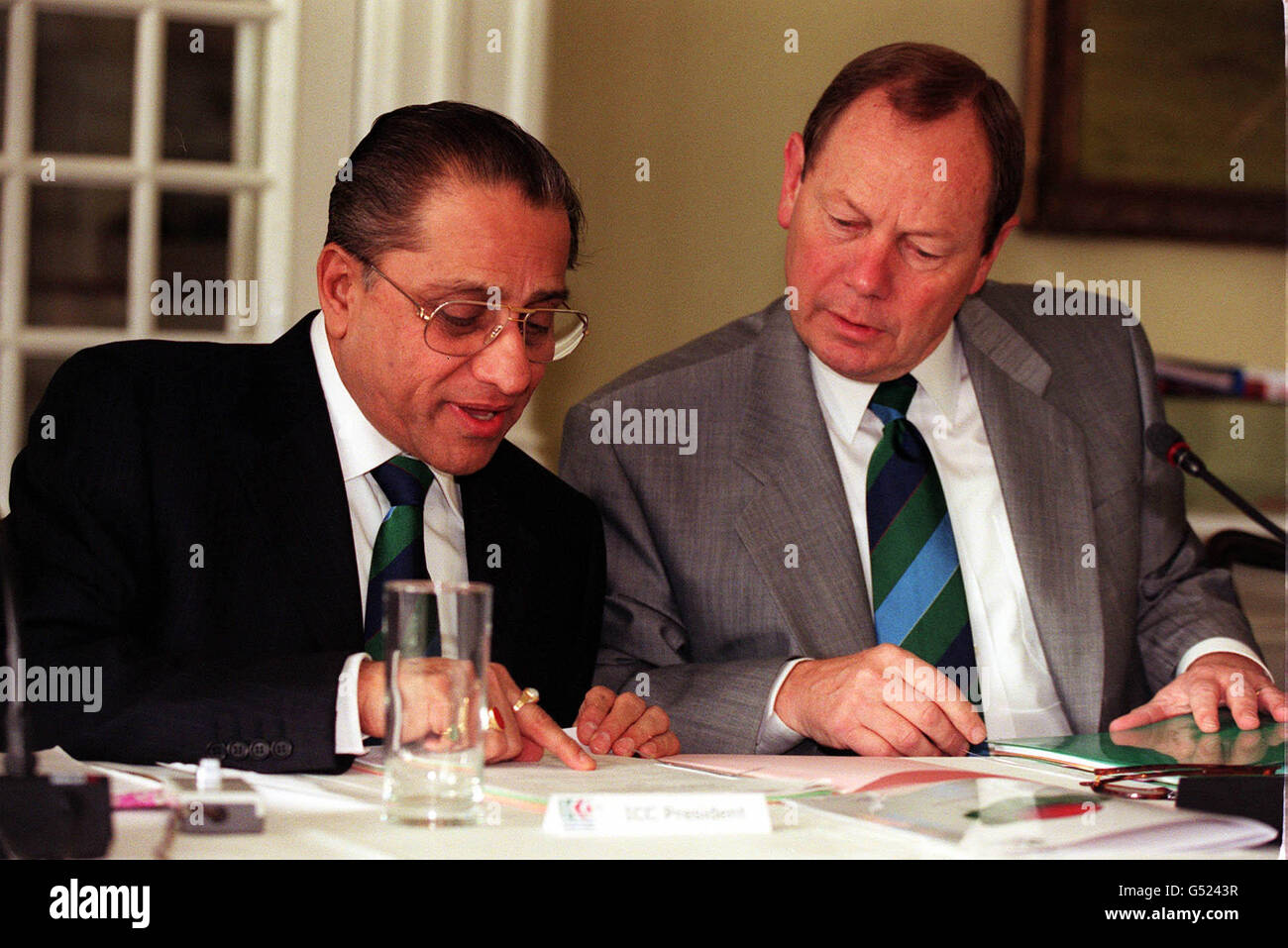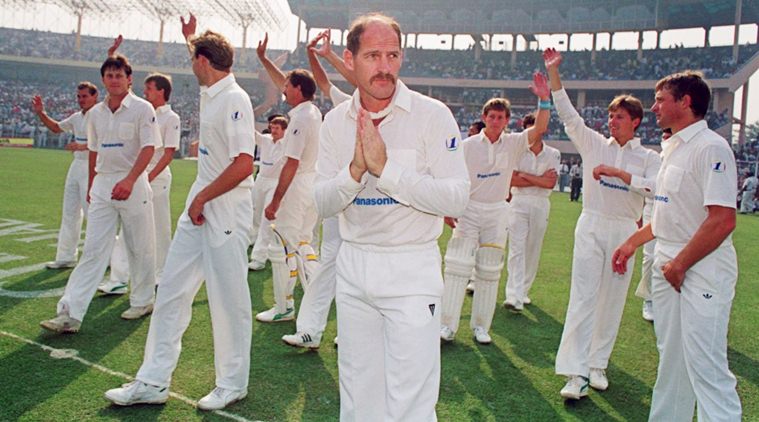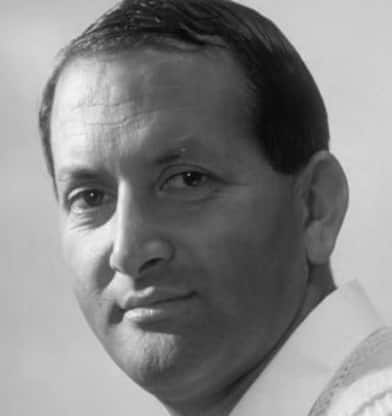
Cricket is one of the most beautiful sports to have ever have come into existence. And…if you go solely with my opinion, I would rather call it the ‘most’ beautiful sport in that regard. When we take a look at the top teams in the cricketing world, there are quite a few like INDIA (of course), Australia, England, New Zealand and South Africa. Now, the last one is the name, I am going to talk about today. If you are thinking about why I chose this very nation, then I need to specify that the journey of South African cricket has gone through a rollercoaster due to the Apartheid. As many of you must be knowing that South Africa even went through a ban in this regard. So, today we are going to dive deep into this story.
Cricket amidst Apartheid:
So, South Africa is a nation that was one of the initial countries that started playing cricket. As the number of teams increased, South Africa too evolved as a top cricketing team. But, South Africa was also having an extremely racist Apartheid-led Segregation policy running in their country which deprived black, coloured and Asian Africans of various socio-economic privileges. So, even their cricket team only included white players even if there is a good performing non-white domestic cricketer. Slowly, teams of West Indies and India too got the ‘test-playing nation’ status. But, none of the two had toured or hosted South Africa ever. So, it was only England, Australia and New Zealand which toured and hosted South Africa. England was the most influential country in the cricketing world back then and its stand was ‘Neutral’ in this case so South Africa not just continued playing cricket only with the white teams but was firm on the condition that no non-white player should ever tour there. But…..
The Basil D’Oliviera Epidode
Basil D’Olivera was a name that changed the whole future of South African cricket through a remarkably interesting story. Actually, he was a non-white cricketer of Indian-Portuguese descent and also the captain of the non-white team. Despite having a very good record, he was not getting a chance in the national team because of the ‘Apartheid’ rules. So, he migrated to England in search of better opportunities in 1960. After he started playing first-class cricket there, by 1964 he was a British citizen and by 1966 a part of the English national team.
Also, the environment started changing in England as well. As many migrants from West Indies and South Asia reached there, equality of races started becoming the need of the hour. Now, before the selection of the cricket team for the South African tour, Oliviera’s name too was making rounds. Amidst this, an interior minister from South Africa P.K. Le Roux announced that “We will not allow mixed teams to play against our white teams here. That is our policy. It is well known here and overseas.” Here, MCC too got a clear message from the British government that the selection should be based purely on merit. But, in an attempt to keep its cricketing relations with South Africa alive and to save the tour from cancellation, the selected England team didn’t feature Oliviera. The reason just mentioned ‘Oliviera’s patchy form and more in-form younger options’.
On one hand, while the whites in South Africa rejoiced in this decision, the non-whites were seriously offended. This brought up extremely critical, stringent and completely unexpected reactions in England. Some people started writing to the PM for abandoning the tour, while as many as 70 MCC members too started pressing for the same. Now, came the most surprising event, of which no one knows the real reason behind. One of the selected players pulled out from the tour pertaining to an ‘Injury’ and guess the replacement…it was Oliviera.
Also Read: The Journey of the greatest dish ever…..SAMOSA…!!!!!
Action Over ‘Too Much’ Apartheid
South African board was completely bewildered and it straightaway said that MCC players are no longer welcomed here as the team is carrying a political statement. This simply brought water above the head and eventually turned out to be the Nail in the Coffin for South African sports. Not just, did the ICC vote out South Africa from the cricketing world, but South Africa was also suspended from the FIFA, Olympics as well as other sports.

Pic: The West Indies Rebel Tour
A History of Rebel Tours
Getting banned from international cricket had two prominent effects on South African cricket. Firstly, it started lagging behind when the whole cricketing world was progressing especially with the introduction of the World Cup and world series. Secondly, due to isolation from the world, cricketers from South Africa started migrating to other countries for playing cricket, particularly England. But, that was not all, because some players from foreign countries used to tour South Africa going against their respective country boards. Such players even faced bans and suspensions from their respective boards. So, to compensate them, the South Africa board used to give them extra compensation.
The first Rebel Tour came from England in 1981-82, including big names of Graham Gooch, Jeffrey Boycott and Alan Knott, who received a 3-year ban. Then, the next touring guys were Sri Lanka, Australia twice and England again. One of the most significant rebel tours came from the West Indies twice in 1982-82 and 1983-84. Actually, West Indies was an absolute champion team at this point in time, and many players were not able to make it into the XI because of an already existing rock-solid team. So, such players fulfilled their ambitions through these rebel tours. This included the likes Alwin Kalicharan, Sylvester Clarke, Colin Craft, Collis King, all of whom were handed lifetime bans.

Pic: Jagmohan Dalmia and Ali Bacher
And then South Africa Returned
It was the year 1991 when the Apartheid policy finally ended in South Africa. It was preceded by a historic struggle back there under the leadership of some great leaders, which is a whole different episode. But once the resolution was repealed, South Africa was readmitted into the cricketing world. The teams of India, Pakistan, West Indies and Sri Lanka, were against South Africa for its policies. At that time Ali Bacher, the representative of the South Africa cricket board reached BCCI Secretary Jagmohan Dalmiya for support. He contacted the then BCCI President Madhavrao Scindia who was also a cabinet minister in the Congress government. Once he received permission from the government and India agreed internationally, that was the last stamp South Africa needed.
And guess what…the first tour assignment in front of the South African team was ‘Tour of INDIA’. Actually, Pakistan’s tour of India was cancelled and BCCI was looking for a series. That’s when Jyoti Basu, the then CM of West Bengal called Ali Bacher and told him “I want you to play cricket in Calcutta next week.” The whole team reached the Dum Dum airport in a chartered Boeing 707 and was mobbed by the welcoming fans. Throughout their journey to the Grand Hotel, they were showered with rose petals. The team also met Mother Teresa the next day. Life came a full circle, from Mahatma Gandhi being in Sout Africa and then South Africa meeting another ‘Mahatma’ back in India. This was just the welcome, a sport-loving city like ‘City of Joy’ could have given.

Pic: The First South African team after Readmission
The Comeback Game
When the 42-year-old South African Captain Clive Rice( He made his first-class debut back in 1969, but couldn’t play a game due to the ban), came on the turf and said “I know how Neil Armstrong felt when he stood on the moon”. That day the world not just celebrated the match but also the end of a discriminatory policy as South Africa played its first game against any non-white team. The team including Rice comprised of 10 debutants (only the wicketkeeper Kepler Wessels had played for Australia before). Talking about the game; South Africa, despite valuable runs from Kepler (50) and Kuiper (43), could just score 177/8 in rain-affected 47 overs due to the brilliance of Kapil Dev and Manoj Prabhakar (2 wickets each). In reply, even after India was struggling at 20/3 at one stage, riding on the 18-year-old MASTER BLASTER Sachin Tendulkar’s masterclass (62 off 73) and Pravin Amre’s fifty (55), India went through the line comfortably despite Allan Donald’s gritty fifer (5/29).
Also Read: Why it is okay to support Pakistan in Cricket despite being an Indian
PROTEAS had landed
By then, most of the prominent South African names like Graham Pollock, Barry Richards and Mike Proctor were already past their prime. The team now included some talented names like Clive Rice, Jimmy Cook, Peter Kirsten, Allan Donald, Brian McMillan and Dave Richardson. Later the team saw the inclusion of some legendary non-white players like Herschelle Gibbs and Makhaya Ntini, a trend that is continuing even today with the likes of players like Kagiso Rabada. That was a historic moment indeed which went on to shape not just South Africa but also world cricket. South Africa might have lost the match, but they had won many hearts, not just in Kolkata and India, but across the whole world. So, we just got to see how this beautiful game of Cricket played an instrumental role in the fight against Racism. That’s why I say, Cricket is not just a game…it is a ‘FORM OF LIVING’.

Pic: Faf Du Plesis and Kagiso Rabada
”Sport has the power to change the world. It has the power to unite the world in a way that little else does.”
-Nelson Mandela
Reference:
-
-
Out of the darkness of apartheid: The 1991 match where South Africa returned to international cricket and won Kolkata’s heart, By Anindya Dutta, Dec 3, 2020
https://www.firstpost.com/firstcricket/sports-news/out-of-the-darkness-of-apartheid-the-1991-match-where-south-africa-returned-to-international-cricket-and-won-kolkatas-heart-8999001.html
-
-
South African Cricket & The Apartheid Experience, Mar 21, 2021 https://www.news18.com/news/india/south-african-cricket-the-apartheid-experience-2110687.html


